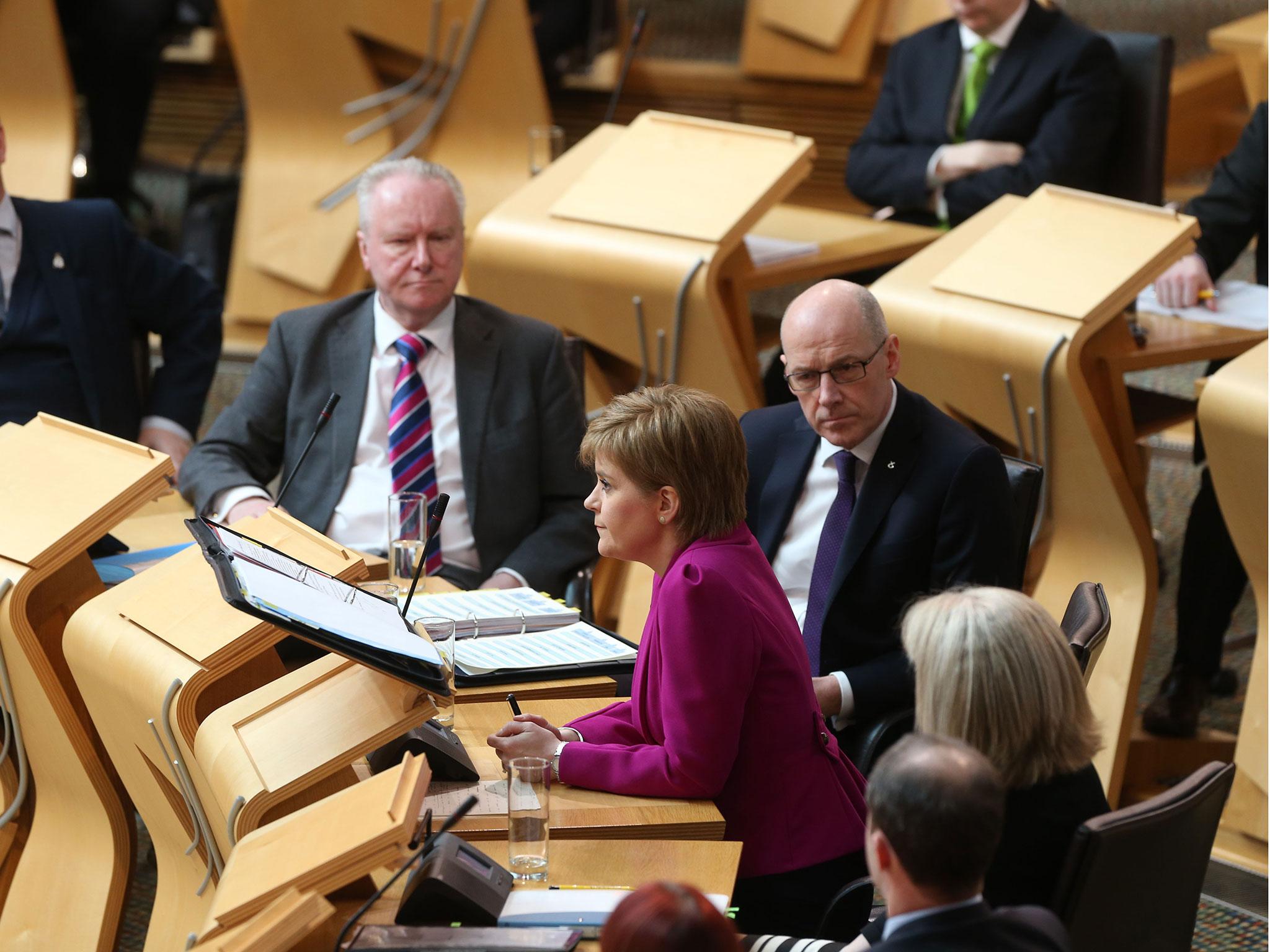Scottish Government's budget 'could fall if George Osborne cuts taxes for higher earners elsewhere in UK'
IFS report suggests First Minister would be powerless to stop any reduction in Scotland’s annual grant from the UK Treasury brought about by tax cuts elsewhere

The Scottish Government could see its budget fall if George Osborne cuts taxes for higher earners in other parts of the UK, according to an analysis of the effects of financial devolution by a group of leading economists.
Despite gaining control over income tax from April next year, Scottish ministers may still see their budgets cut as a knock-on effect of the Chancellor reducing taxes in other parts of the country, the study by the respected economic think-tank the Institute for Fiscal Studies (IFS) found.
Nicola Sturgeon has already signalled her intention to cancel the tax break for higher earners that Mr Osborne announced in last week’s Budget. But the IFS report suggested that the First Minister would be powerless to stop any reduction in Scotland’s annual grant from the UK Treasury brought about by tax cuts elsewhere.
“The use of the [agreed] approach could see the Scottish Government’s budget fall if there are income tax cuts in the rest of the UK,” the economists wrote, before pointing out that it could also increase if the Chancellor decided to hike tax rates.
The point is significant as last week Ms Sturgeon said Mr Osborne’s decision to raise the threshold at which workers start paying the 40p income tax rate to £45,000 was “wrong”, adding that when she unveils her own tax plans at the Scottish Parliament – likely to be on 22 March – she would “not take that same choice”.
But David Bell, Professor of Economics at the University of Stirling and one of the authors of the IFS report, told The Independent that the complex funding agreement underpinning the Scotland Bill meant that tax decisions taken in Westminster could still directly affect Scotland.
“The increase in the higher rate threshold reduces income tax revenues, which in turn reduces spending if you’re sticking to a balanced budget idea,” he said. “The reduction in spending will have consequences for Scotland’s grant, because…when spending in the rest of the UK is cut, Scotland gets its population share of that cut.”
UK Government sources said any reductions to Scotland’s budget caused by tax cuts in other parts of Britain would be insignificant compared to the money it could raise through its own tax system. “If the UK Government’s decision is X, then the Scottish Government can now make a decision on whether it changes something,” one said.
The IFS report concluded that while the Scottish Government appeared to have largely got what it wanted from the negotiations, such as financial protection from the effects of a UK-wide economic downturn, its budget “will be exposed to long and short-term economic risks that affect Scotland differently from the rest of the UK”.
Scotland’s Deputy First Minister, John Swinney, insisted that the fiscal framework was “fair to taxpayers in Scotland and across the UK” and said the Scottish Government had fought hard to ensure that the Treasury was not able to cut its funding. “This analysis by the IFS demonstrates Scotland’s budget could have been cut by £300m a year by 2020/21 if the UK Government’s preferred model had been implemented,” he said.
A Treasury spokesman said: “The historic fiscal framework is fair for Scotland and fair for the rest of the UK. It paves the way for the Scottish Parliament to become one of the most powerful and accountable devolved parliaments in the world. It means that the debate can shift to what really matters – how these powers will be used to create a stronger Scotland.”
Subscribe to Independent Premium to bookmark this article
Want to bookmark your favourite articles and stories to read or reference later? Start your Independent Premium subscription today.

Join our commenting forum
Join thought-provoking conversations, follow other Independent readers and see their replies